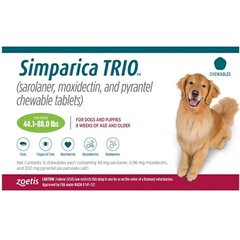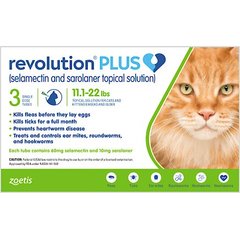Does Apple Cider Vinegar Kill Fleas?
Madeleine_Steinbach/iStock / Getty Images Plus via Getty Images
You’ve likely heard of many remedies for preventing and treating fleas, and if you find yourself with a flea issue, you’ll want to get rid of them quickly and effectively.
While many pet parents want to try natural methods such as apple cider vinegar to kill fleas, these remedies don’t often work and can even be harmful to your pet.
What Are Fleas?
Fleas are irritating insects that live on dogs and cats as well as other pets and people. Fleas wreak havoc not only on your pet but in your home and yard as well. The most common flea that affects our pets is the cat flea, or Ctenocephalides felis.
Fleas use their strong back legs to jump onto a host, animal or human, and feed on their blood after a bite. Small black specks are often seen in your pet’s fur, which is the digested blood coming out of the flea as feces, or “flea dirt.”
Fleas can consume up to 15 times their body weight in blood per day, which can in turn cause significant blood loss in small animals such as puppies and kittens.
Flea bites are also very itchy and can cause a skin infection from the bite itself or from the scratching your pet does in response. Serious consequences of flea bites or infestations include disease transmission, flea allergy dermatitis, and life-threatening anemia in pets.
What Is Apple Cider Vinegar?
The word vinegar comes from the Latin words for “sour wine.” Apple cider vinegar (ACV) is made from crushed fermented apples, yeast, and sugar. It has been used for thousands of years in cooking, alcoholic beverages, preservation liquids, and even as a medication for cough and colds in ancient Greece.
Can Apple Cider Vinegar Kill Fleas?
Apple cider vinegar doesn’t kill fleas. It has been used by some people seeking to repel fleas; however, any repellent properties are likely due to the offensive smell and not to specific insect repellent properties.
When applied to the skin, ACV has a sticky consistency that can be offensive to pets. It can also cause significant skin irritation, which may cause your pet to lick themself and ingest it, resulting in stomach upset.
ACV’s risk of adverse effects far outweighs its benefits, so it’s not recommended as a natural flea repellent.
Instead, pet parents should opt for high-quality flea and tick preventatives for dogs and cats, such as Simparica Trio™ or Revolution® Plus.
Risks of Using Apple Cider Vinegar to Kill Fleas
While ACV is not toxic, ingestion can cause gastrointestinal issues in pets.
Topical application as a flea treatment or repellent can cause serious skin irritation, which can lead to ingestion if a pet licks their inflamed skin.
Vomiting, diarrhea, drooling, and lack of appetite commonly result if a pet is given ACV by mouth. Pets should never be forced to take ACV orally, as its bitter taste and strong smell can cause them to potentially aspirate the fluid into their lungs, which can cause pneumonia.
ACV should also never be put into a pet’s ear canal as an ear infection treatment. ACV can be drying, which can lead to further discomfort, causing the pet to scratch their already inflamed ear. The liquid can also worsen any infection that is already present.
Although ACV does have properties that can benefit people, it’s not recommended for use in pets. It’s important to speak to your veterinarian before using any home remedies, such as ACV, for pet ailments.


